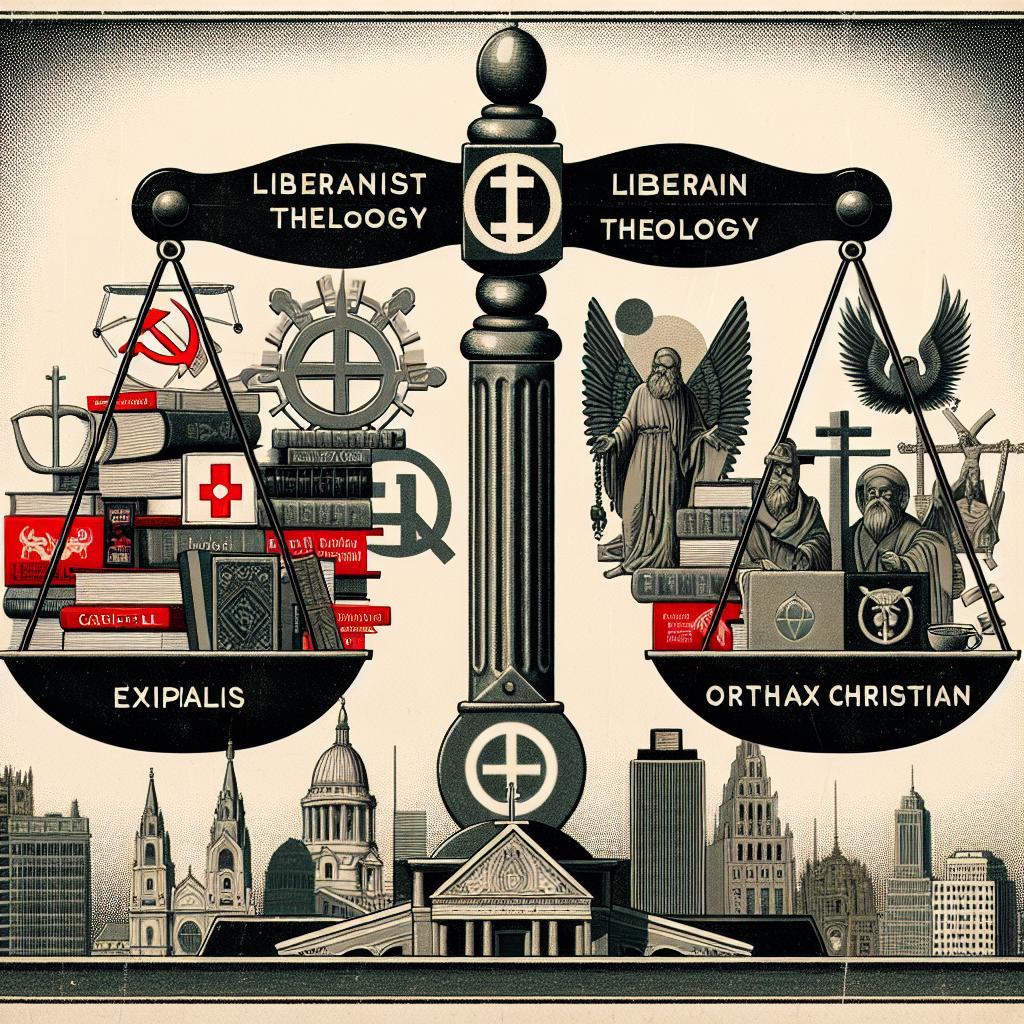
Unveiling the Truth: Critiquing Anti-Capitalist Theology from a Christian Perspective
Published: 10 September 2024
Critiquing Anti-Capitalist Theology from a Conservative Christian Perspective
Question 1: What is Liberation Theology and its Relationship to Capitalism?
Liberation theology is a theological movement that emerged in the mid-20th century, primarily in Latin America, seeking to address economic and social injustices through the lens of Christianity. It combines elements of Marxist analysis with Christian teachings on justice and solidarity. While its proponents argue that it offers a path to liberation for the oppressed, it is important to critically analyze its compatibility with biblical principles.
From a conservative Christian perspective, liberation theology's relationship with capitalism is problematic. Capitalism, as an economic system based on private ownership and free markets, provides individuals with the freedom to pursue their own economic interests and create wealth. In contrast, liberation theology often criticizes capitalism as inherently exploitative and oppressive. However, the Bible does not condemn capitalism outright. Instead, it emphasizes the importance of ethical conduct, justice, and stewardship within economic systems.
Biblical Perspective: - Proverbs 14:23 (ESV) - "In all toil there is profit, but mere talk tends only to poverty." - 1 Timothy 6:17-19 (ESV) - "As for the rich in this present age, charge them not to be haughty, nor to set their hopes on the uncertainty of riches, but on God, who richly provides us with everything to enjoy. They are to do good, to be rich in good works, to be generous and ready to share, thus storing up treasure for themselves as a good foundation for the future, so that they may take hold of that which is truly life."
Question 2: How Does Christianity Respond to Anti-Capitalist Movements?
Christianity acknowledges the existence of economic inequalities and advocates for justice and compassion towards those who are marginalized or oppressed. However, it is important to critically evaluate anti-capitalist movements through a biblical lens.
While anti-capitalist movements often focus on wealth redistribution and collective ownership, Christianity emphasizes individual responsibility and voluntary acts of charity. The Bible encourages believers to use their resources wisely, work diligently, and help those in need willingly and cheerfully. It opposes forced redistribution, recognizing that it can undermine personal responsibility and create dependency.
Biblical Perspective: - 2 Thessalonians 3:10 (ESV) - "For even when we were with you, we would give you this command: If anyone is not willing to work, let him not eat." - Acts 20:35 (ESV) - "In all things I have shown you that by working hard in this way we must help the weak and remember the words of the Lord Jesus, how he himself said, 'It is more blessed to give than to receive.'"
Question 3: How Does Christianity Defend Economic Inequality?
Economic inequality is a complex issue that Christianity addresses with principles of justice, stewardship, and the recognition of God's sovereignty. While some may argue for complete economic equality, the Bible does not promote such an ideal. Instead, it calls for fairness, accountability, and compassion within economic systems.
Christianity recognizes that individuals possess different talents, abilities, and opportunities. It encourages the responsible use of resources and acknowledges that wealth creation benefits society as a whole. Rather than focusing on eliminating inequality itself, the Bible emphasizes caring for the poor and marginalized while promoting personal accountability and generosity.
Biblical Perspective: - Matthew 25:14-30 (ESV) - The Parable of the Talents highlights the importance of stewardship and accountability for resources. - Proverbs 19:17 (ESV) - "Whoever is generous to the poor lends to the Lord, and he will repay him for his deed."
Question 4: How Can Christian Socialists' Interpretations be Challenged?
Christian socialists argue for the collective ownership of resources and the elimination of private property, viewing it as a means to achieve economic justice. However, from a conservative Christian perspective, these interpretations can be challenged by examining biblical teachings on personal responsibility, stewardship, and the role of government.
While the Bible promotes caring for the poor and marginalized, it does not advocate for the abolition of private property or the imposition of a socialist economic system. Instead, it encourages voluntary acts of charity and emphasizes the importance of individual responsibility in managing resources. Moreover, it recognizes that government intervention should be limited, allowing individuals to exercise their God-given freedom and creativity.
Biblical Perspective: - Exodus 20:17 (ESV) - "You shall not covet your neighbor's house; you shall not covet your neighbor's wife, or his male servant, or his female servant, or his ox, or his donkey, or anything that is your neighbor's." - Acts 5:4 (ESV) - "While it remained unsold, did it not remain your own? And after it was sold, was it not at your disposal? Why is it that you have contrived this deed in your heart? You have not lied to men but to God!"
Continue reading...
